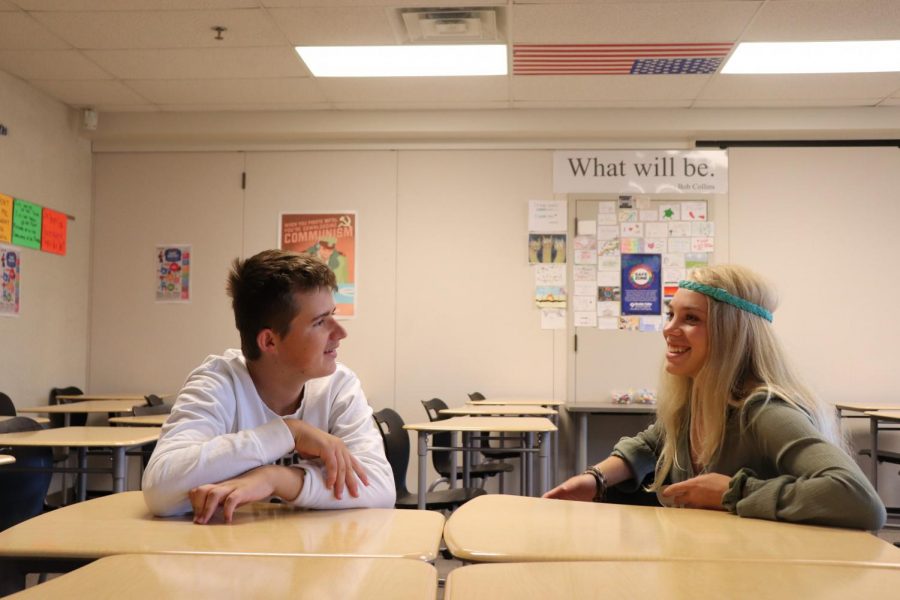Rally Robin revolution
Kagan strategies change learning styles for students
Throughout this school year, teachers have been improving their craft using group activities and peer teaching skills. This is the Kagan initiative.
Over the summer, Monarch administrators brought teachers to the Google headquarters in Boulder to learn new classroom methods, team building exercises and structures that involve students talking more to their peers.
“The Kagan system is a way of engaging students, and it makes [students] more active learners,” Spanish teacher Ms. Alice Davidoff said. “I’m talking less, and they’re talking more.”
A small team of teachers and administrators were first introduced to Kagan last October at a district training.
“After doing that, we wanted to bring this back to our building,” assistant principal Ms. Linda Hubbard said. “So, we brought it back to Mr. Anderson, and we talked about it. It really fit our schoolwide unified improvement plan.”
Some teachers say there has already been improvement for students academically and socially.
“Kids who were struggling are doing a little bit better now because they have learned to ask their tablemates for help and not just wait for me to answer their questions,” math teacher Ms. Melissa Vass said.
These new structures include activities like Rally Robin, Rally Coach, and Round Table. “Kids are coaching each other and helping each other out instead of doing a textbook activity,” Mrs. Davidoff said. “They are working together. They’re learning it by teaching it.”
However, it’s not just new to students. “It’s brand new for some teachers, and we only had one day of full faculty training, so it’s a little hard for everybody to be comfortable with it,” Ms. Vass said.
This October, teachers will receive additional training to become more familiar with this teaching style.
Ms. Vass is hoping to keep the Kagan program to help improve what happens in and out of school.
“I think what happens is we see more companionship amongst the students and they are going to be nicer to each other because they are going to see that they all have commonalities,” she said.































